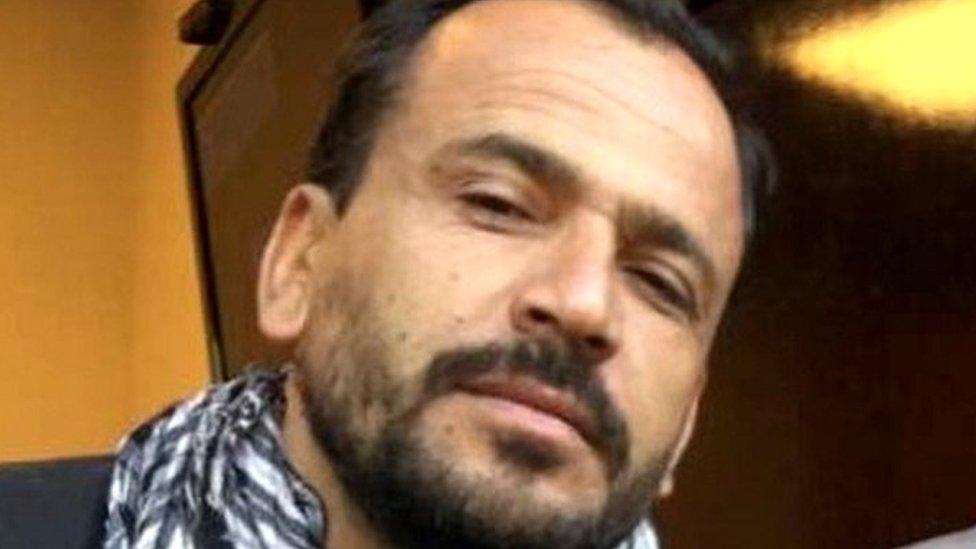Viewpoint: Can Afghan leader tackle crisis of confidence?
- Published
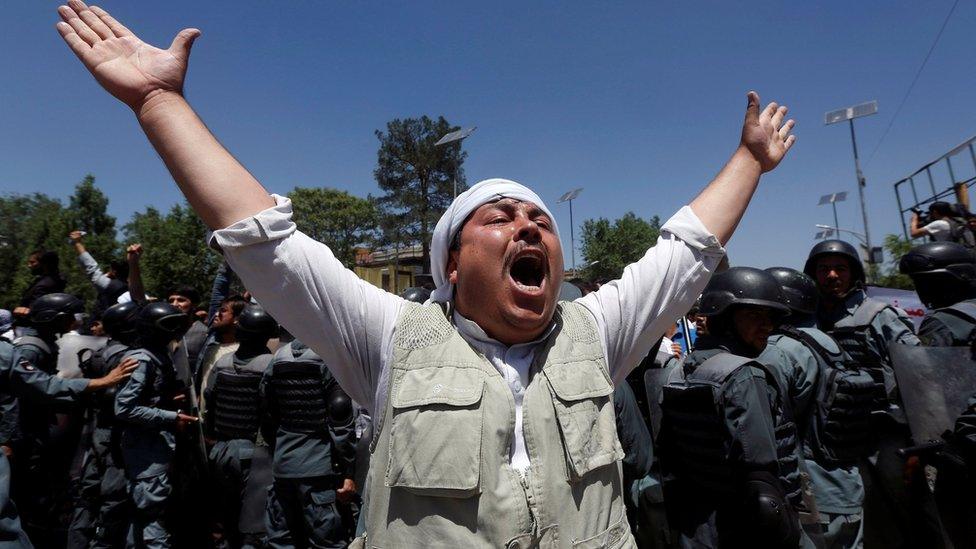
Afghans have protested in Kabul in recent days calling for President Ashraf Ghani to step down
The devastating suicide bombings in Kabul last week have created a crisis of public confidence in the government, its policies and in particular the reputation of President Ashraf Ghani.
Afghanistan is fast moving from a failing state to a failed state, as the bombings have led to further paralysis of the economy, increased demands by the opposition and demonstrations calling for Mr Ghani's resignation. They will inevitably further delay a policy decision by the US and Nato to send more troops to Afghanistan or respond with other forms of help, such as a diplomatic initiative.
A peace conference on Tuesday called by Mr Ghani is expected to invite representatives of two dozen countries, but with many embassies either having been hit in the 31 May bombing, which targeted the diplomatic quarter, or having sent many diplomats home, the conference is unlikely to be more than a talking shop.
The most vital issue is the political crisis in Kabul. Many Afghans believe the government has lost its legitimacy at home, and is solely propped up by the US and the international community.
Mr Ghani is widely accused of incompetence, arrogance and playing the ethnic card in a deeply divided country, while being apparently unwilling to build a coherent coalition or a working relationship with Chief Executive Officer Abdullah Abdullah. It was the US that brokered the coalition after disputed elections in 2014 led to political stalemate.
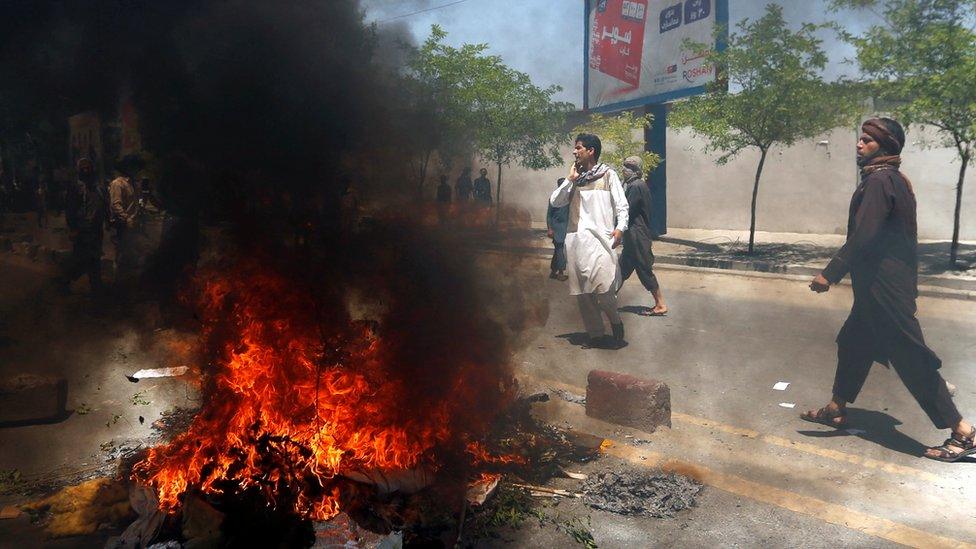
Economic malaise and deteriorating security are at the heart of public discontent
Opposition leaders have now been joined in the streets by a section of the public infuriated by the bombings in Kabul. The opposition, which now includes many from Mr Ghani's own ethnic group, the Pashtuns, is still fragmented in its demands but all politicians have rejected Mr Ghani's pleas to form an ''inclusive government''.
Instead they are calling on him to step down, establish an interim government of leaders from a wide cross-section that would strengthen the fight against terrorism and prepare the country for elections. However, in the present environment with Afghans so disunited, such a scenario appears equally unworkable.
US divisions
Washington is the key to what kind of commitment the international community will give to Mr Ghani. So far both Presidents Barack Obama and Donald Trump have done everything to keep Mr Ghani in power, while pushing him to work with Mr Abdullah, but that policy has now clearly failed.
Before the bombings and the street demonstrations, the Trump administration was discussing whether to send another 3,000-5,000 US troops to Afghanistan, but now that will hardly be sufficient.
Moreover there are acute divisions in the US National Security Council staff, with one group of right-wingers advising Mr Trump to walk away from Afghanistan while the military figures in the NSC want to remain committed. A diplomat close to the administration said that Mr Trump is reluctant to back any policy that increases US responsibility in Kabul.

Last week's blast was the most deadly in years in the Afghan capital
The economic crisis - already acute with tens of thousands of Afghans fleeing to Europe, villages devastated by the war with the Taliban and US aid now in doubt - has suddenly got much worse. Many shops in Kabul have been closed for the past week amid fears of looting. The Taliban has once again launched an offensive to capture the northern city of Kunduz - they have twice before captured the city and then been repelled.
The rapidly deteriorating crisis may have surprised the West but not Afghans, who have seen it a coming for a long time. On 31 May the biggest suicide bomb in recent history went off in a highly secure area of Kabul dotted with foreign embassies. No diplomats died but more than 150 people, most of them civilians, were killed and hundreds wounded.
The bombing was followed by days of demonstrations condemning the government for incompetence. On 2 June at least four demonstrators were killed by police firing live rounds and tear gas to stop them from reaching the presidential palace. A day later, at least seven more civilians were killed in three suicide bombings at a funeral of one of the young protesters - the son of an Afghan senator.
No group has said it carried out any of the suicide attacks. It is unclear whether the bombings were carried out by the Taliban - who denied responsibility - or Islamic State militants.
Tuesday's Kabul peace conference also comes amid an acute foreign relations crisis, as the majority of Afghans accuse Pakistan of continuing to host the Taliban leadership and its most murderous wing, the Haqqani group. Pakistan denies the charge. Afghans also accuse Iran and Russia of helping the Taliban.
The conference, which will focus on counter-terrorism, really needs to help the Afghans come to a political consensus to form a better or even a new government in Kabul that can win back public trust. But without US leadership, which has "owned" Afghanistan since 11 September 2001, there is little that other states can do or would even be willing to do.
The real tragedy is that most distant states - but not the neighbours - are keen to wash their hands of Afghanistan.

Ahmed Rashid
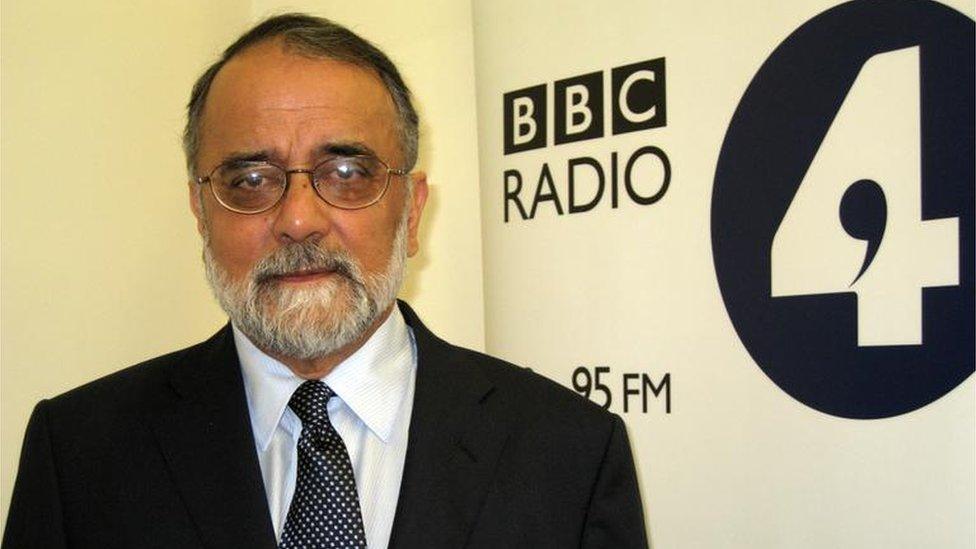
Ahmed Rashid is a Pakistani journalist and author based in Lahore
His latest book is Pakistan on the Brink - The Future of America, Pakistan and Afghanistan
Earlier works include Descent into Chaos and Taliban, first published in 2000, which became a bestseller

- Published3 June 2017
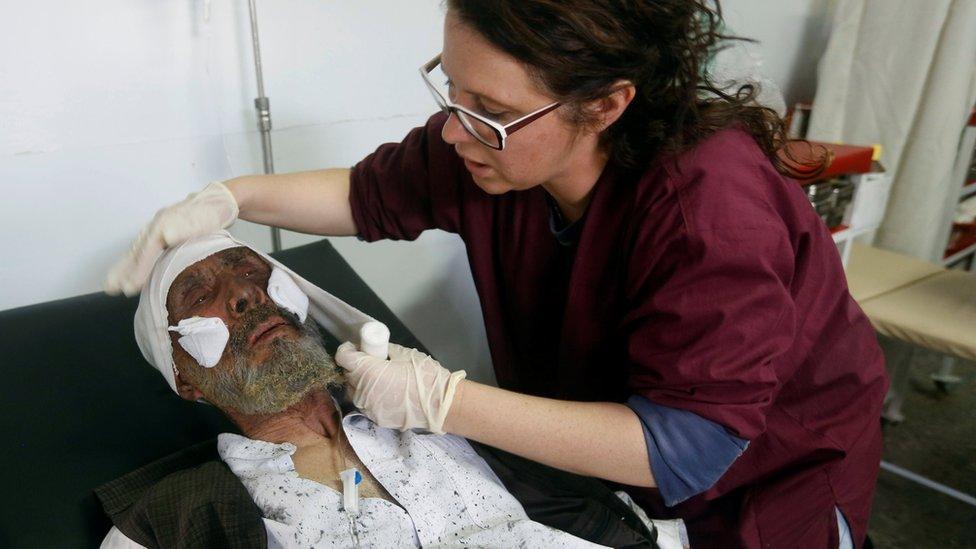
- Published31 May 2017
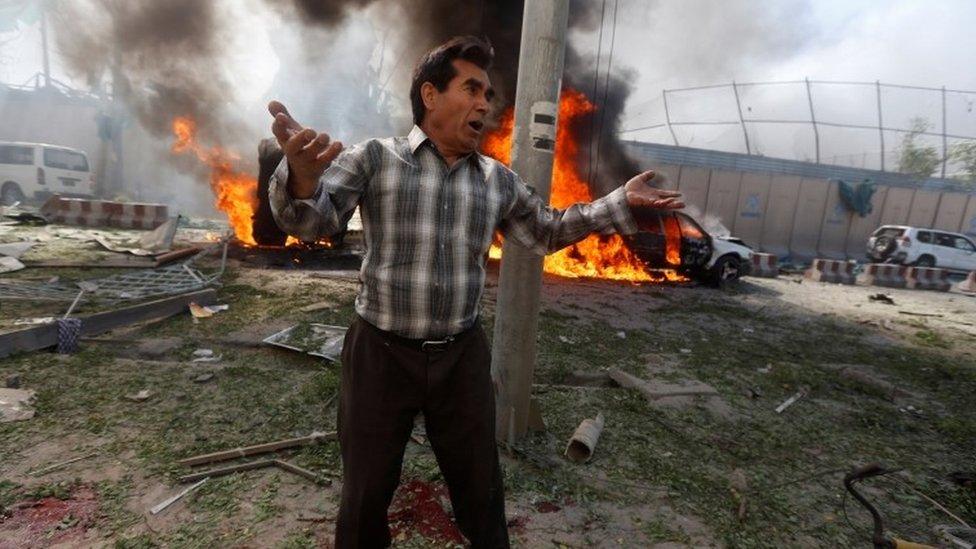
- Published2 June 2017
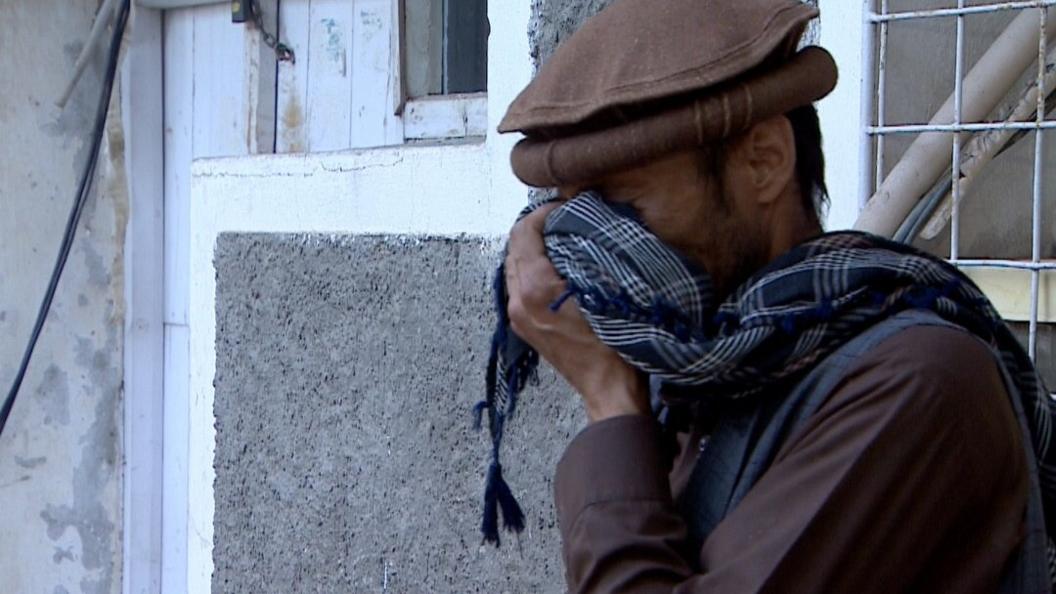
- Published1 June 2017
